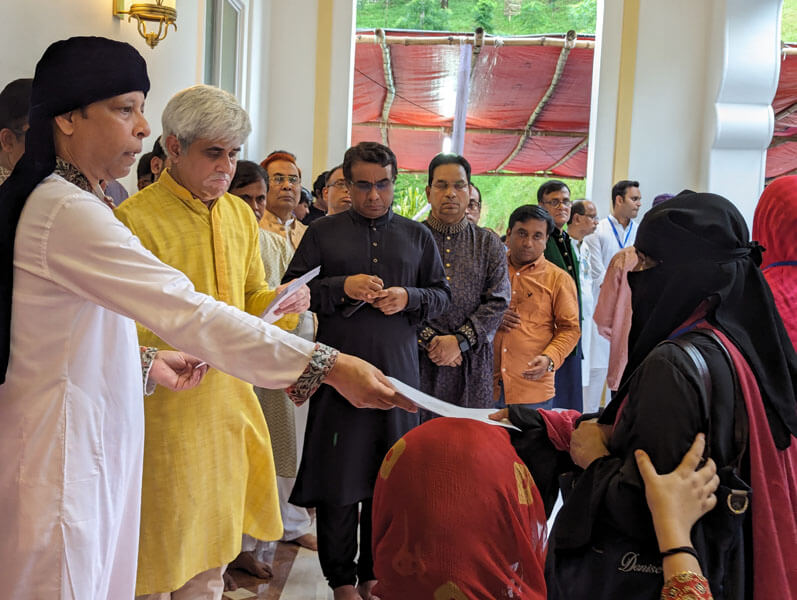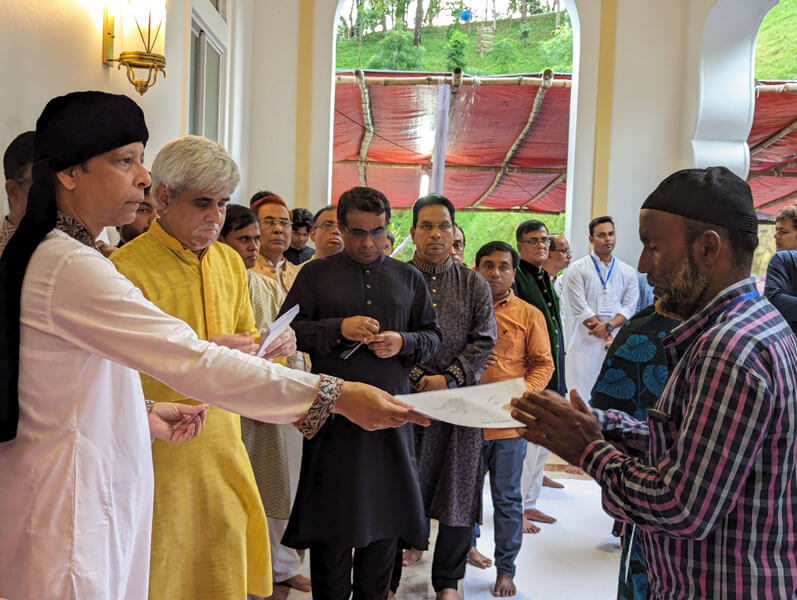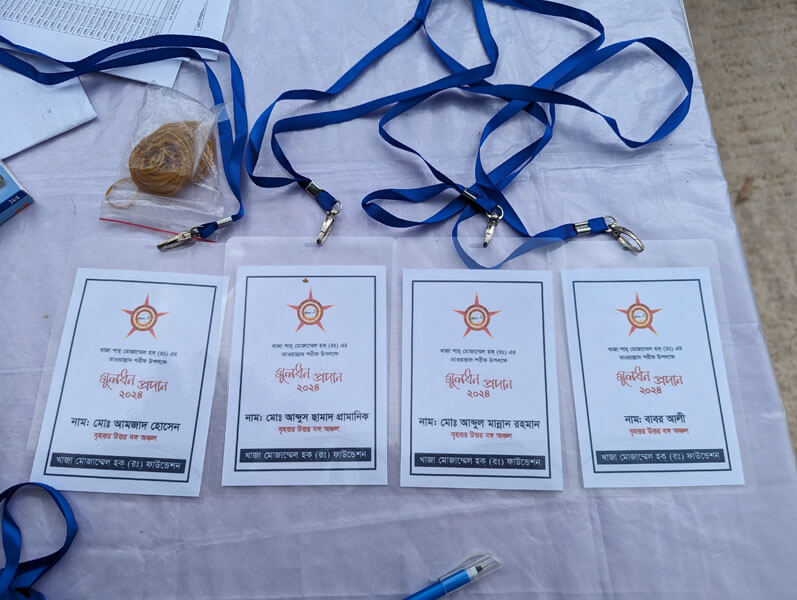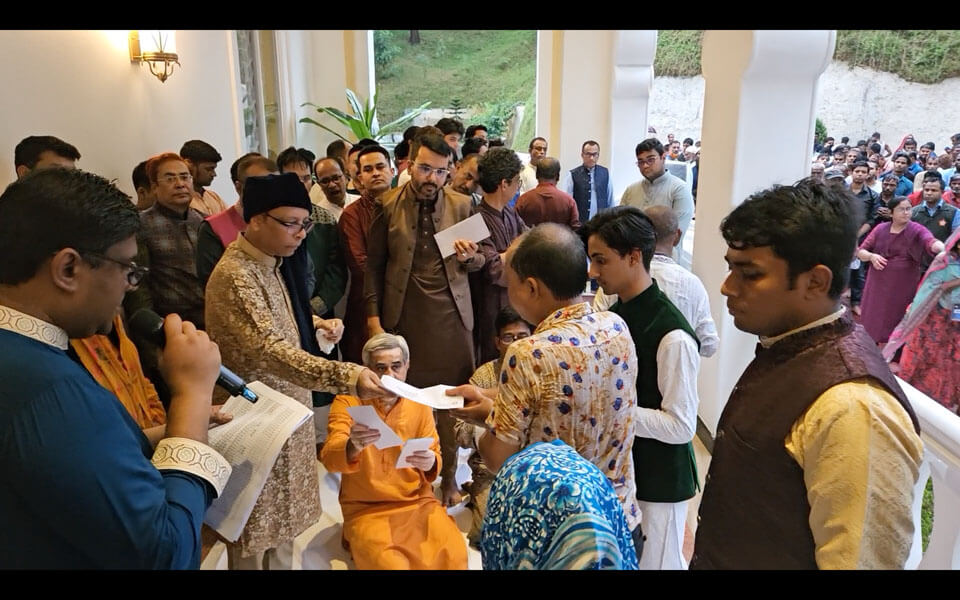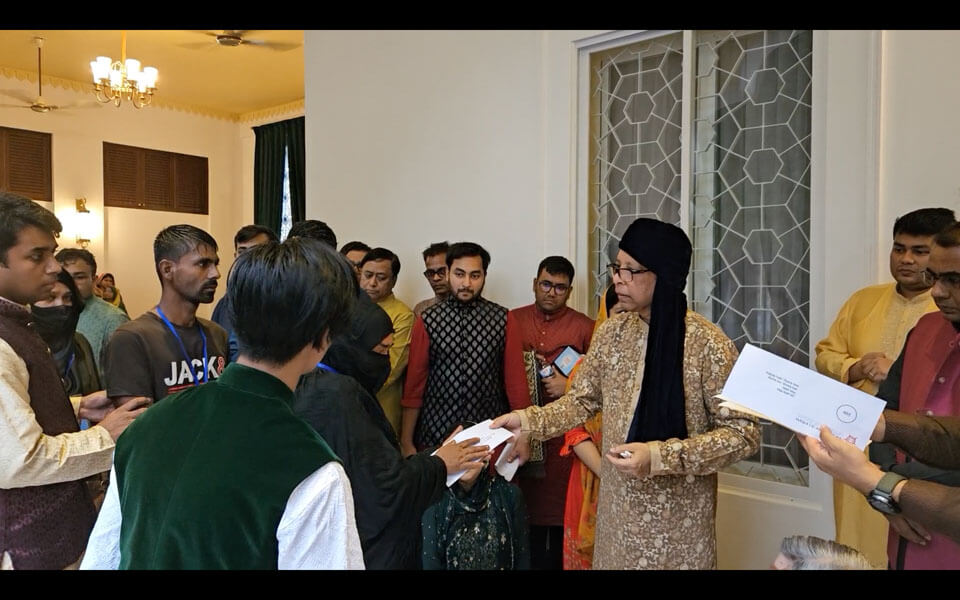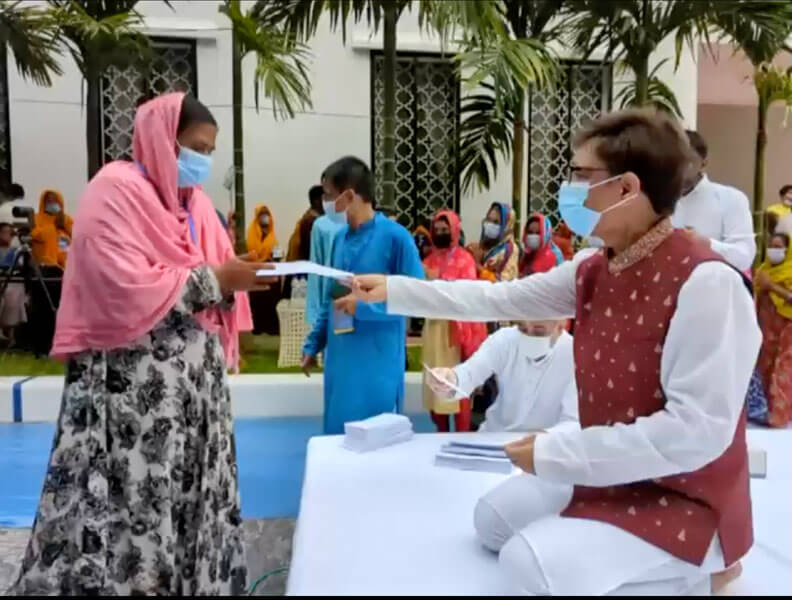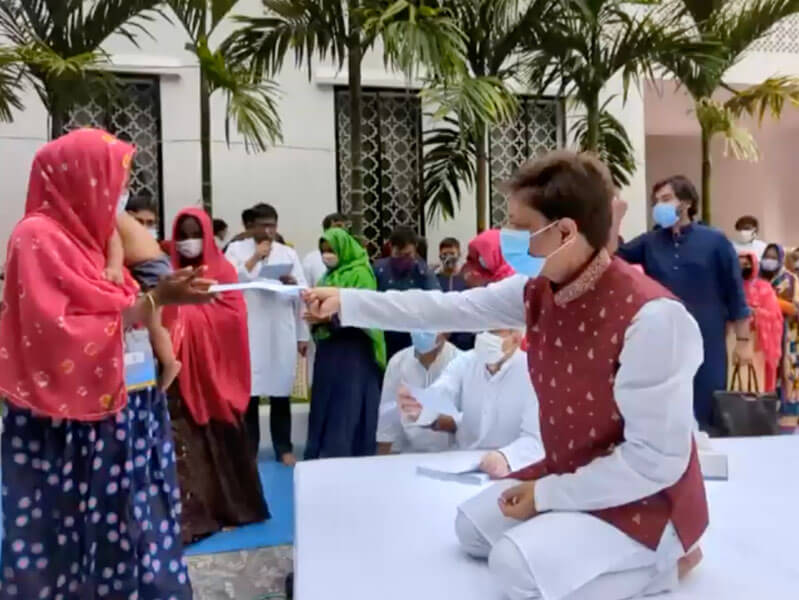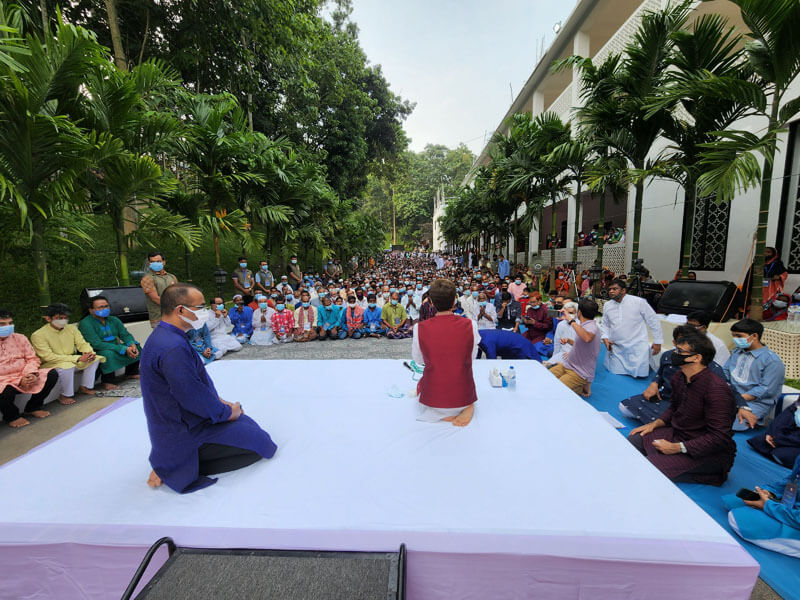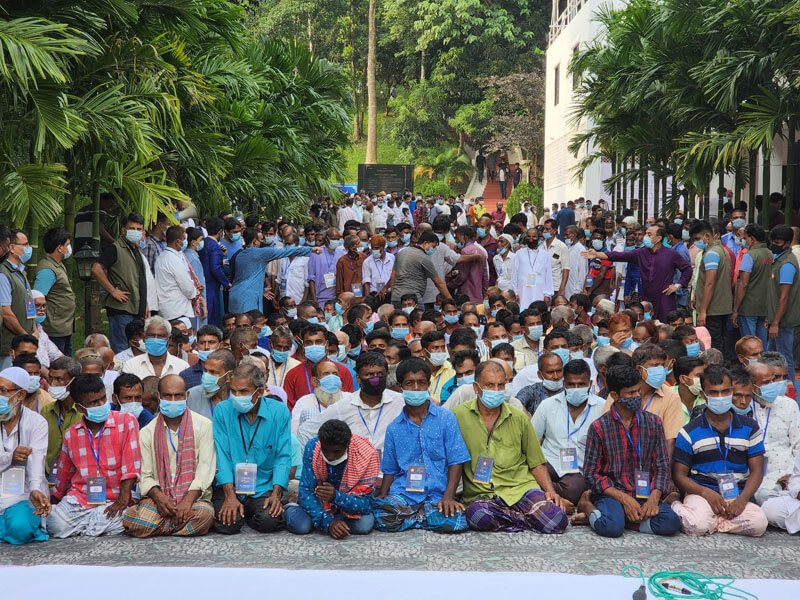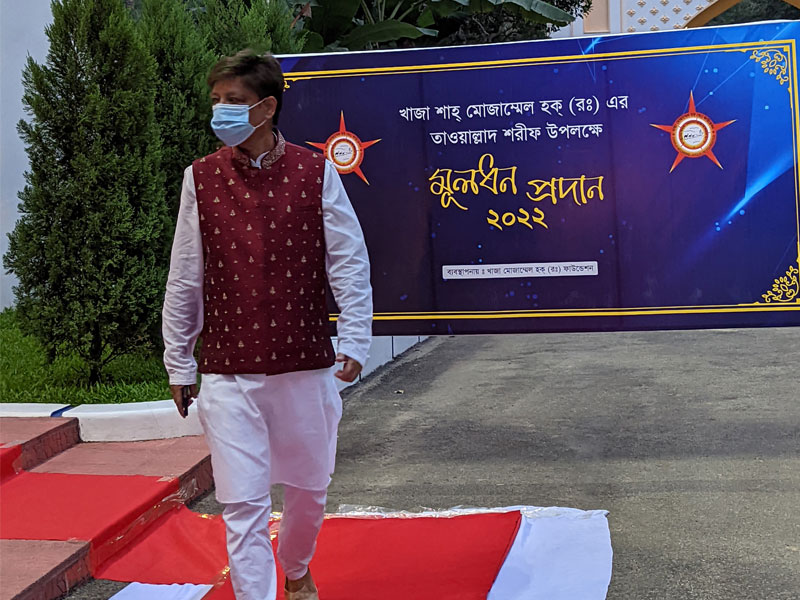The Khwaja Mozammel Hoque (R:) Foundation provides financial assistance via Capital as Sadka-e-Zaria, based on the teachings of the Holy Quran, to help impoverished families in Bangladesh break free from poverty without the burden of debt via a no-strings-attached financial assistance that does not require repayment.

Capital as Sadka-E-Zaria
Bangladesh, home to one of the largest Muslim populations globally, faces significant challenges due to widespread poverty, especially in rural areas where about 62% of the population lives. Many people in these regions lack access to proper education, basic health services, and sufficient nutrition, directly affecting their quality of life and well-being.
To support their families, many are forced to borrow money with accrued interest rates, trapping them in a permanent cycle of debt. Breaking free from this cycle is essential for improving their lives and promoting sustainable development.
Addressing this need in line with Islamic principles, the Khwaja Mozammel Hoque (R:) Foundation (KMRF), a Sufi-based organization, practices Sadka-e-Zaria as taught in the Holy Quran. Sadka-e-Zaria is a form of continuous, non-refundable charity that provides ongoing benefits to recipients and spiritual rewards that continue even after one’s death.
By offering financial assistance without requiring repayment, KMRF empowers individuals to become self-reliant without the burden of debt. This approach helps the needy break free from poverty and allows those who contribute to earn sawab (spiritual rewards) that continue beyond their lifetime. Even though a person’s a’mal-nama (record of deeds) closes upon death, the rewards from Sadka-e-Zaria keep adding to their record, as the benefits of their charity continue to impact others.
This concept is supported by a hadith of the Prophet Muhammad (S:) (peace be upon him):
“When a person dies, their deeds come to an end except for three: Sadka-e-Zaria (a continuous charity), beneficial knowledge, or a righteous child who prays for them.”
(Hadith 4005 in book-13 of Sahih Muslim)
The Quran also emphasizes the importance of ongoing charity. Surah Al-Baqarah (2:261) states:
”The example of those who spend their wealth in the cause of Allah is that of a grain that sprouts into seven ears, each bearing one hundred grains. And Allah multiplies [the reward even more] to whoever He wills. For Allah is All-Bountiful, All-Knowing.”
One of KMRF’s main objectives is to help families permanently break free from the cycle of poverty. As the Chairman, Khwaja Tipu Sultan, says, he doesn’t want even a single family to stay impoverished. The financial assistance provided as capital through Sadka-e-Zariah is thus the ideal means to achieve this goal, enabling sustainable development and continuous spiritual rewards.

Health Support
Poverty and unemployment in poor countries often leave people without access to medical care. Insufficient education and lack of access to information makes it difficult for millions of people understand how to prevent and cure diseases or take care of themselves.Mortality due to unawareness of deadly diseases and medical care is high in developing countries.
Read More
Scholarship Program
The Government of Bangladesh has set a priority to education in the agenda of national development by launching mass literacy programs for eradication of large-scale
Read More









